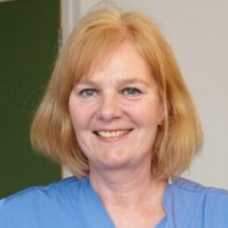Person-Centered and Family-Centered Care Following Burn Injuries
A special issue of European Burn Journal (ISSN 2673-1991).
Deadline for manuscript submissions: 31 December 2024 | Viewed by 2558
Special Issue Editors
Interests: person centred pain free wound care; pain; nursing
Special Issue Information
Dear Colleagues,
The purpose of this Special Issue is to enhance the knowledge on and practical applications of person-centered and family-centered burn care. This Special Issue aims to draw attention to research and clinical approaches or interventions that contribute to the knowledge and clinical practice associated with person-centered care and family-centered care for patients with burns and their relatives. Studies related to nursing, wound care, pain, psychological wellbeing, and quality of life are encouraged. Research articles, reviews, and commentaries are all welcome.
Dr. Alette de Jong
Dr. Nancy Van Loey
Guest Editors
Manuscript Submission Information
Manuscripts should be submitted online at www.mdpi.com by registering and logging in to this website. Once you are registered, click here to go to the submission form. Manuscripts can be submitted until the deadline. All submissions that pass pre-check are peer-reviewed. Accepted papers will be published continuously in the journal (as soon as accepted) and will be listed together on the special issue website. Research articles, review articles as well as short communications are invited. For planned papers, a title and short abstract (about 100 words) can be sent to the Editorial Office for announcement on this website.
Submitted manuscripts should not have been published previously, nor be under consideration for publication elsewhere (except conference proceedings papers). All manuscripts are thoroughly refereed through a single-blind peer-review process. A guide for authors and other relevant information for submission of manuscripts is available on the Instructions for Authors page. European Burn Journal is an international peer-reviewed open access quarterly journal published by MDPI.
Please visit the Instructions for Authors page before submitting a manuscript. The Article Processing Charge (APC) for publication in this open access journal is 971 CHF (Swiss Francs). Submitted papers should be well formatted and use good English. Authors may use MDPI's English editing service prior to publication or during author revisions.
Keywords
- person-centered care
- family-centered care
- wound care
- psychosocial
- psychological
- coping
- pain
- nursing





